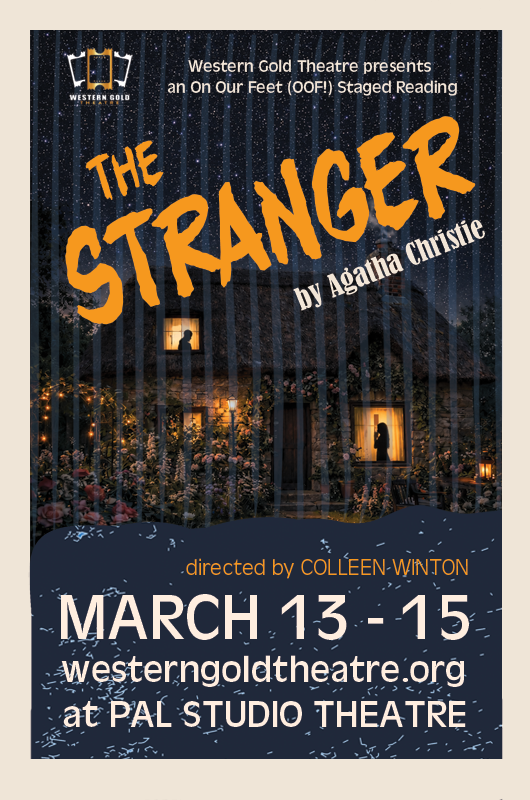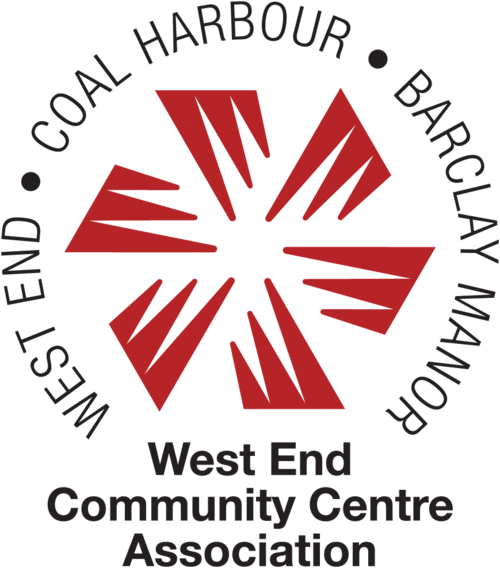A CLOSER LOOK
/LOCAL RESIDENTS CONTINUE TO FIGHT
MASSIVE 2030 BARCLAY HOTEL PROPOSAL
by Jake McGrail
(click images to enlarge)
Over the last couple months we’ve done some coverage of the grassroots campaign to try and stop the rezoning of 2030 Barclay, currently occupied by the old Rosellen Suites hotel. The Stop2030Barclay campaign has only grown in strength over the course of the summer and now into the beginning of the fall, coinciding with the city’s online public forum for the redevelopment proposal and its looming decision on the issue.
A POSTER THAT OPPOSES THE HOTEL PROPOSAL (Stop2030barclay.ca)
The proposal in question — a 27-storey hotel with 270 rooms, a ground-floor restaurant and bar, and an upper-level patio with a pool — has drawn opposition from residents in the area since it was first introduced. Submitted by real estate developer Marcon, the proposal is a massive shift from their original plan for the site from back in 2018, which was to build a 10-storey condo tower.
Mark Jan Vrem is one of the co-founders of the Stop2030Barclay campaign. Jan Vrem was quite dismayed when he first saw the developer’s sign for a massive hotel proposal out in front of the Rosellen, and he wanted to try and do something about it.
“This big hotel, it just doesn’t fit. It’s like a 10-pound package in a five-pound bag,” Jan Vrem told The West End Journal (TWEJ). “It’s traffic congestion, it’s noise, it’s safety issues, it’s parking, it’s blocking views, it’s shadows…and it just doesn’t fit the scale of the neighbourhood.”
Mark Jan Vrem and his wife Bonnie.
The campaign took a little while to gain traction, but eventually more people took notice and wanted to take a stand as well. Jan Vrem credits the work of a number of people for helping grow the vocal opposition to the proposed hotel, and turning the group into what it is now.
That group includes Jane Murphy Thomas, who acts as the Community Participation Facilitator for the campaign. Murphy Thomas took to this task with aplomb, given her past experience as a community organizer. Since the end of August, her work has included hosting petition signing tables at the West End Farmers Market each Saturday and outside Denman Mall each Sunday.
Murphy Thomas said the public reception has been “very, very enthusiastic.” Tabling in the community helps raise awareness of the issue and hear perspectives on the proposal from other local residents. “A lot of people are in disbelief that the city is even entertaining this proposal, they’re shocked that something like this is proposed for this neighbourhood, and really angry about it,” Murphy Thomas told TWEJ.
The complaints from West End residents can be seen across many platforms - from the petition tables, to the Stop2030Barclay website, to The West End Journal’s own Facebook page, to the Shape Your City Q&A page.
The Rosellen suites now (Ewan Streit photo)
Many of the most common complaints about the proposal can be boiled down to worries about the logistical strain a massive new hotel could cause in the middle of a very residential area. Those include more traffic and congestion and increased noise, both during the building’s construction and from use of the proposed restuarant, pool, and bar. There’s also concerns over building height and changes to the character of the neighbourhood.
For Murphy Thomas, this is something that she’d thought she was going to be able to avoid, after having moved to just a block away from the proposed hotel, from a building near Harwood and Thurlow that itself was bought for redevelopment a decade ago. She and others in her co-op sought advice from various professionals as they navigated that process at the time, including someone from the city.
“We asked the question, ‘If our building sells, where do we go so that this doesn’t happen again, so we don’t get re-zoned out of there sometime?’ And the representative said to us, ‘Go west of Denman. That’s the protected area,’” Murphy Thomas relayed.
As of right now, everything west of Denman Street has the RM-5B (Residential) zoning tag. That would change should the 2030 Barclay proposal be approved, as it calls for a rezoning to CD-1 (Comprehensive Development). That’s a designation that only a handful of sites anywhere in the West End have outside of the “commercial streets” of Denman, Robson and Davie.
When Marcon initially submitted its application for a nearly 30-storey hotel back in the summer of 2024, the city itself stated that the application “is not consistent with Council-adopted policies.” How have things changed since? Well, a revised application from Marcon dropped their hotel from 29 to 27 storeys. But the more important shift was city council passing a new Hotel Development Policy earlier this year.
ABC Vancouver, who hold a majority on council, have placed a big emphasis on creating more hotel rooms to try to match demand and bring in more tourism dollars. ABC’s hotel policy allows for extra density for specific hotel projects, and allows hotel developers to count private facilities as part of their community amenity contributions. The latter was a last-minute change brought by ABC Coun. Sarah Kirby-Yung, who was warned by staff that the policy could further diminish the city’s ability to generate revenue for new city facilities, according to Vancity Lookout.
With the application under review, the city’s planning department was unable to comment on it to TWEJ. However, city staff did release plenty of statements in answering the nearly 150 questions posed by the public during the project’s Q&A period. One answer that came up repeatedly was that the new hotel policy “takes precedence” over other council policies when it comes to height and density considerations for replacing existing hotels.
An artist’s rendering of the view from Barclay Street, looking south, if the project is completed. (HENRIQUEZ PARTNERS ARCHITECTS)
In other words, there’s no point referencing the West End Community Plan or any other previous city-enacted development policies, because in cases of replacing existing hotels (like the Rosellen Suites) with bigger hotels, the new hotel policy is the only thing that matters.
Both Marcon and representatives of the city have stated that this proposal at 2030 Barclay is more of a one-off than anything else, since the extra height and density considerations only applies in cases where there’s already a hotel on the property. Vancouver currently has 78 hotels.
“I think at this point, there are so few opportunities to do this in the city, that we may see one of these every few years, maybe less,” said Nic Paolella, Marcon executive vice president, in an interview on CBC’s The Early Edition on September 16.
“I think you can see the challenge the city will have to try and get anywhere close to its goals…because of how few places you can do spot-rezonings on existing hotels where it would make any sense to do that. These end up being unique and one-off moments inside of communities — I don’t think there’s many communities in the city that have so many of these types of hotels,” Paolella said.
Kirby-Yung spoke about 2030 Barclay on the same radio program the following day, where she avoided directly expressing either personal support or disapproval of the specific project, but focused on how pressing of a need there is for more hotels in Vancouver.
“With respect to desperately needing new hotels, that’s something that’s been well-quantified in the city,” Kirby-Yung said. “We’ve got about 13,000 hotel rooms right now. The estimates and all the studies show we’re short about 10,000 rooms. Demand is going to outstrip supply by next summer,” she explained. Those figures come from a study by tourism promoter Destination Vancouver that found the city needs to add those ~10,000 rooms over the next 25 years to meet projected demand.
A RENDERING OF THE HOTEL’S LOWER LEVELS (MARCON, HENRIQUEZ PARTNERS ARCHITECTS)
But while this is “just” one application, Jan Vrem worries that it could be a sign of things to come, should the proposal pass in its current state.
“There’s something that’s sort of existential about this application, because you’re dropping a CD-1 zoning into a residential neighbourhood,” Jan Vrem said, adding he’s concerned that, if the rezoning goes ahead, it could set the tone for other redevelopments.
“Other land owners are going to think, ‘Oh condos aren’t selling, maybe we should shift gears and get CD-1 zoning in other parts of the West End or other parts of the city’... it could help shape the future of the West End and other parts of Vancouver,” Jan Vrem said.
Of course, under current guidelines, it doesn’t seem feasible that a bunch more proposals like this would pop up in the West End (especially west of Denman). However, the new hotel development policy demonstrates the current council majority’s appetite to shift the rules and requirements in an effort to spur more development.
That brings up another major concern with the project and the rezoning it would need to happen, according to retired architect and former Vancouver City Planning Commission member Rob Grant.
“I think the fact that a developer is getting such an uplift in land value is almost unconscionable,” Grant said. “What are the negotiations? It’s all behind closed doors. What kind of community amenity contributions are going to go with this thing, the up-zoning of this land?”
“You’re getting clever architects and developers who really know how to game the system, being able to do this almost Hail Mary sort of thing…and it’s got nothing to do with what we need in the West End, which is affordable housing,” Grant remarked.
West Enders can be seen most weekends at various locations protesting the hotel project and collecting petition signatures. (From left) Maureen Wilson, Gary Durban, and Margaret Chisholm.
Grant also feels that there simply doesn’t seem to be some sort of unified plan with how the city is approaching development across the board.
“If the planning department was so serious about these hotels, what about the Empire Landmark — the tallest building in the West End, on Robson Street. It was a hotel. It took two years to demolish and then they put up two condo towers,” Grant said.
In a similar vein, multiple commenters on The West End Journal’s Facebook page pointed out how the Coast Plaza Hotel also closed down and was turned into primarily apartments with a small “boutique” hotel also in the building.
While many people certainly have made their voices clear to the city with regards to the 2030 Barclay proposal, it remains to be seen whether staff will recommended any changes to the application when its referred to city council for a public hearing and decision. With the application currently under review, there’s also no clear timeline for when staff will complete that referral report.
While Murphy Thomas isn’t the most pleased with the level of engagement from the city she and the Stop2030Barclay campaign have received, she plans to keep working to make sure public engagement doesn’t die down while waiting for the report.
“We’re assessing things now and looking at the answers they gave about timing, and thinking how do we keep people interested and what do we do next…there’s lots and lots of things that we still can do, and those are what we’re strategizing about.”
For the time being at least, the Rosellen Suites remain at 2030 Barclay. But for how much longer? We’ll just have to wait and see.






